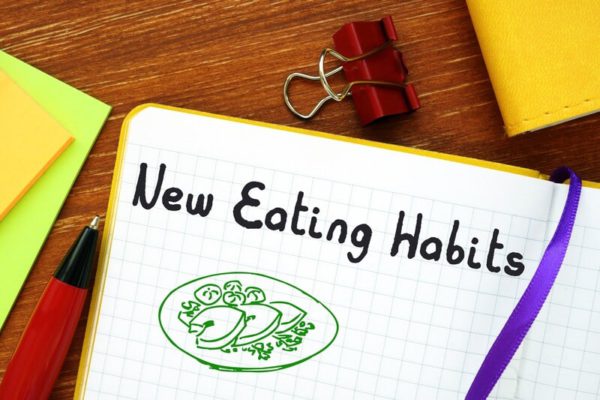Do you feel like you have a never-ending battle with the scales? Are you tired of gaining weight that stays with you forever? Constant weight gain may mean you need to overcome emotional overeating.
What is emotional overeating?
Emotional overeating is a complex topic, but it has essential elements that are easy to recognize. Emotional overeating is disordered eating characterized by the compulsion to eat even if you are full. It tends to be a response to negative emotions or thoughts. Emotional eating is a coping strategy for those under stress or who have suffered abuse. The drive to eat emotionally is an unconscious reflex. You will be unaware of triggers that will have you heading for the refrigerator or grabbing a sweet treat without you consciously being aware of your actions.
Food often provides comfort for emotional eaters. But, using food as a  means to fill an emotional gap is never a long-term solution. Emotional overeating can sabotage your diet and weight-loss goals. It can, and will always, over time, negatively affect your health.
means to fill an emotional gap is never a long-term solution. Emotional overeating can sabotage your diet and weight-loss goals. It can, and will always, over time, negatively affect your health.
How would you know if you suffer from binge or emotional eating? Ask yourself the following questions, and see if it is a habit you need to change.
- Do you often find yourself eating between meals?
- Are you inclined to eat when: you are bored, tired, stressed, upset, angry, or frustrated?
- When you feel uncomfortable – like at a function – do you look for something to eat?
- Do you use food as a reward?
- How often do you eat when you are not hungry or when you are full?
- When someone offers you food, do you feel obligated to accept?
How did you do? Are you in control of your eating, or is food your way of coping with the ups and downs of life?
Luckily, there are easy steps you can take today to overcome emotional overeating!
Try these strategies:
Figure out your triggers.
Is a past event or memory triggering emotional overeating, thought, or feeling. If you can figure out your triggers, it will be easier to control them and stop them from encouraging you to overeat.
The most common triggers are stress and negative emotions. Other triggers can be difficult days at work, fights with your family or spouse, and issues with friends or coworkers.
Coaching, counselling, and other therapy may also help you deal with your triggers.
Only eat when you are hungry.
Teach your body to accept food only when you are hungry instead of viewing it as a constant source of comfort.
Our bodies have two signals in respect of our appetite. These are: I am hungry, and I have had enough. These signals worked well in ancient times when we were primitive  cave people. Nowadays, it is almost impossible for anyone to feel actual hunger so the signal ‘I am hungry’ is very rarely felt.
cave people. Nowadays, it is almost impossible for anyone to feel actual hunger so the signal ‘I am hungry’ is very rarely felt.
As children, food was a reward, a band-aid when we were hurting, a substitute when our parents went out – we were taught ‘food equals comfort.’ Food made everything ‘better.’ Food is so plentiful, and access to it is as easy as picking up the phone. We have forgotten how to wait until ‘we are hungry’ we eat according to convenience or a clock.
What about stopping eating when we are full?
As babies, we did this. We stopped drinking when we were full. But very quickly we learned to drink and eat all. To stop eating when we had enough, create upset and dissent. Do you remember, ‘no dessert if you don’t eat your vegetables?’ Most of us couldn’t leave the table until our plates were empty. Our well-meaning parents to over-ride the ‘full sensation’ in our stomachs. Our stomach still sends a signal to say, ‘I’m full, stop eating!’ We just no longer listen. We are never hungry. More often, when we start a meal, we are often still full from the last feast. A small handful of food 3 times a day is more than enough for an adult.
Changing Habits
This step will take time because changing your eating habits is challenging. However, you can take small steps to make dietary modifications. Learn to listen to your body  and pay attention to real hunger pangs. You can fast track changing with hypnosis – Check out the MP3 recordings in our shop …
and pay attention to real hunger pangs. You can fast track changing with hypnosis – Check out the MP3 recordings in our shop …
Create alternative plans. Try substituting a more positive action that also brings you comfort or reduces your stress. For example, if you know that you overeat after a difficult meeting at work each week, plan and prevent it.
- By creating alternative plans that don’t involve eating, you will be setting yourself up for success.
- For example, you can plan a long walk or gym workout after work to get rid of stress.
- Instead of turning to your fridge and ice cream after an argument, you can binge-watch your favourite TV shows, watch a you-tube video or get on the phone with a friend.
The key is to find other ways to deal with stress and negative emotions.
Surround yourself with people who care.
One of the main reasons many people turn to emotional overeating is because they feel they don’t have a support network. Do you feel alone and isolated?
- Reach out to family, friends, coworkers, and others for help.
- Build a strong support network around you that can help you deal with negativity and stress. Find those whom you can call or visit without worrying that you’re intruding or upsetting routines. In turn, be open to offering them support, too.
- Explain to friends or loved ones about emotional overeating so they can understand why you overeat. Discuss effective techniques that can motivate you to stick to a diet or exercise plan. They can remind you of these techniques when you need help, without being authoritarian or critical, to help you get back on track.
Trying to overcome emotional overeating doesn’t have to control your life. You can fight it and overcome it with these easy strategies. Book a session with our Weight Loss Therapists or download a MP3 hypnosis recording such as how to Overcome Emotional Eating or Portion Control or Sugar Cravings Gone

